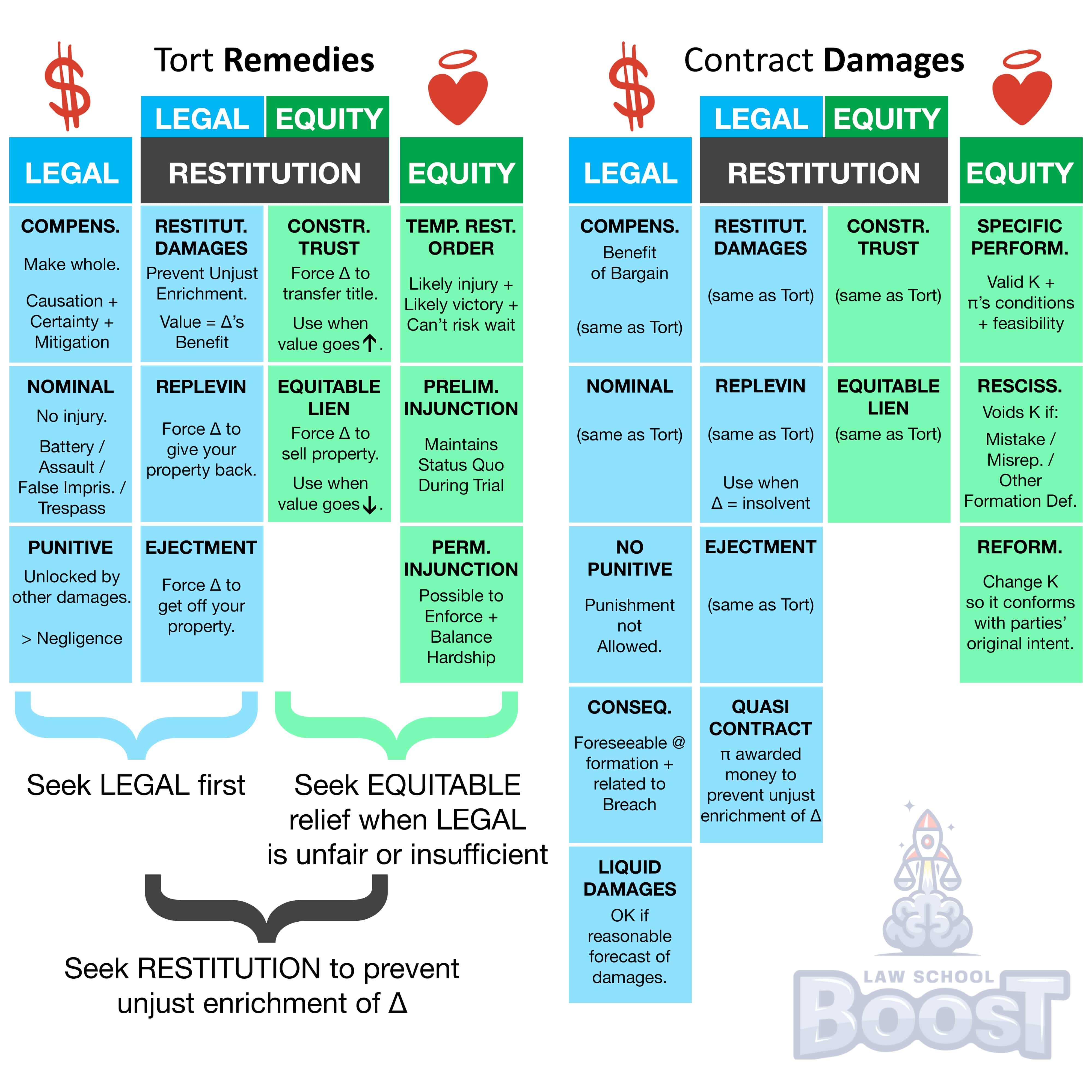🏥
Remedies • Tort - Equitable Remedies
REM#029
Legal Definition
The court will balance the benefit to the plaintiff with the hardship to the defendant if relief is granted. To deny the injunction, there must be a gross disparity between the detriment to the defendant and the benefit to the plaintiff, and even then there will be no balancing if the defendant acted willfully. The court will also consider the hardship to the public.
Plain English Explanation
When a court is deciding whether to issue a permanent injunction (a court order that stops someone from doing something), they look at how much good it will do for the person asking for it (plaintiff) versus how much it will hurt the person it's against (defendant). If the harm to the defendant is way more than the benefit to the plaintiff, the court might not give the injunction. However, if the defendant did something really bad on purpose, the court won't care about the balance and might just give the injunction. The court will also think about how the decision might affect everyone else (the public).
Hypothetical
Hypo 1: Bob keeps playing loud music at night, and it's causing Sam to lose sleep. Sam asks the court for a permanent injunction to stop Bob from playing loud music. The court sees that stopping the music will help Sam sleep better, but it also knows that Bob uses music to cope with stress. Result: The court decides that Sam's need for sleep is more important than Bob's stress relief, so they grant the injunction and Bob has to stop playing loud music.
Hypo 2: Bob has a tree that drops leaves into Sam's yard. Sam asks the court for a permanent injunction to make Bob cut down the tree. The court sees that while cutting the tree might make Sam's yard cleaner, it would mean Bob loses a tree that's been in his family for generations. Result: The court decides the harm to Bob is way more than the benefit to Sam, so they don't grant the injunction.
Hypo 3: Bob is dumping trash into a river, and the pollution affects Sam's drinking water. Sam asks the court for a permanent injunction. The court finds out that Bob knew what he was doing was wrong and harmful. Result: Even though stopping Bob might cost him money, the court grants the injunction because Bob acted badly on purpose and Sam's health is at risk.
Hypo 4: Bob and Sam live next to each other. Bob paints his house a color that Sam doesn't like. Sam asks the court for a permanent injunction to make Bob repaint his house. Result: The court decides this rule doesn't apply because it's just a matter of personal taste and not causing any real harm or benefit.
Hypo 2: Bob has a tree that drops leaves into Sam's yard. Sam asks the court for a permanent injunction to make Bob cut down the tree. The court sees that while cutting the tree might make Sam's yard cleaner, it would mean Bob loses a tree that's been in his family for generations. Result: The court decides the harm to Bob is way more than the benefit to Sam, so they don't grant the injunction.
Hypo 3: Bob is dumping trash into a river, and the pollution affects Sam's drinking water. Sam asks the court for a permanent injunction. The court finds out that Bob knew what he was doing was wrong and harmful. Result: Even though stopping Bob might cost him money, the court grants the injunction because Bob acted badly on purpose and Sam's health is at risk.
Hypo 4: Bob and Sam live next to each other. Bob paints his house a color that Sam doesn't like. Sam asks the court for a permanent injunction to make Bob repaint his house. Result: The court decides this rule doesn't apply because it's just a matter of personal taste and not causing any real harm or benefit.
Visual Aids

Related Concepts
What are equitable remedies in tort?
What are the defenses to a suit seeking injunctive relief?
What is a preliminary injunction and how is it issued?
What is a temporary restraining order ("TRO") and what is required to get one?
What is contempt?
What is the collateral bar rule?
What parties are bound by an injunction?
When assessing defenses to a lawsuit seeking injunctive relief, when are unclean hands applicable?
When assessing defenses to a lawsuit seeking injunctive relief, when is impossibility applicable?
When assessing defenses to a lawsuit seeking injunctive relief, when is laches applicable?
When deciding on a permanent injunction, when may ejectment be inadequate?
When deciding on applying a permanent injunction, when may money damages be inadequate?
When may replevin be inadequate as a remedy and, instead, a court will opt for a permanent injunction?
When will a court issue a permanent injunction?


